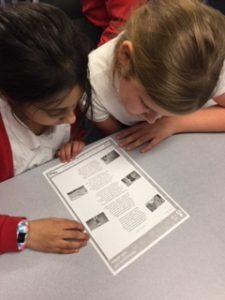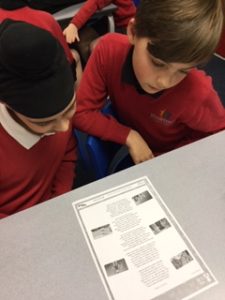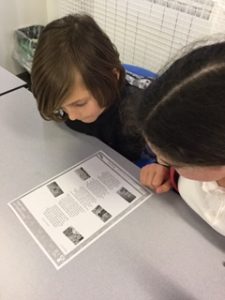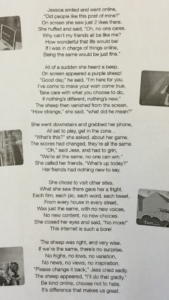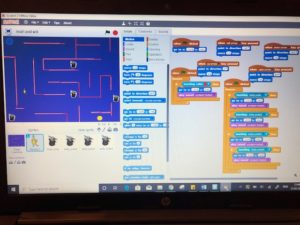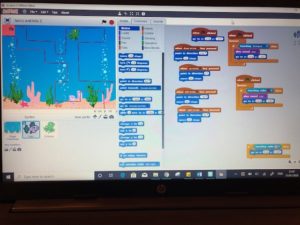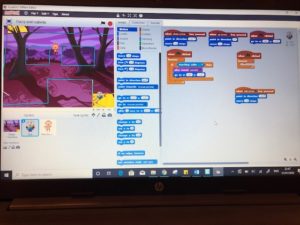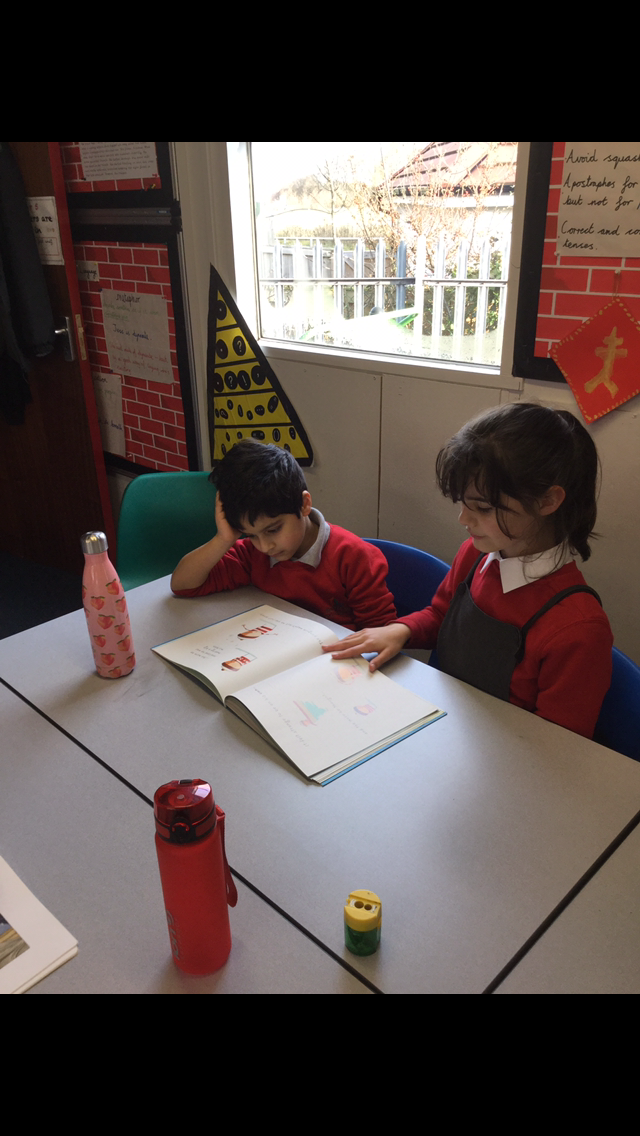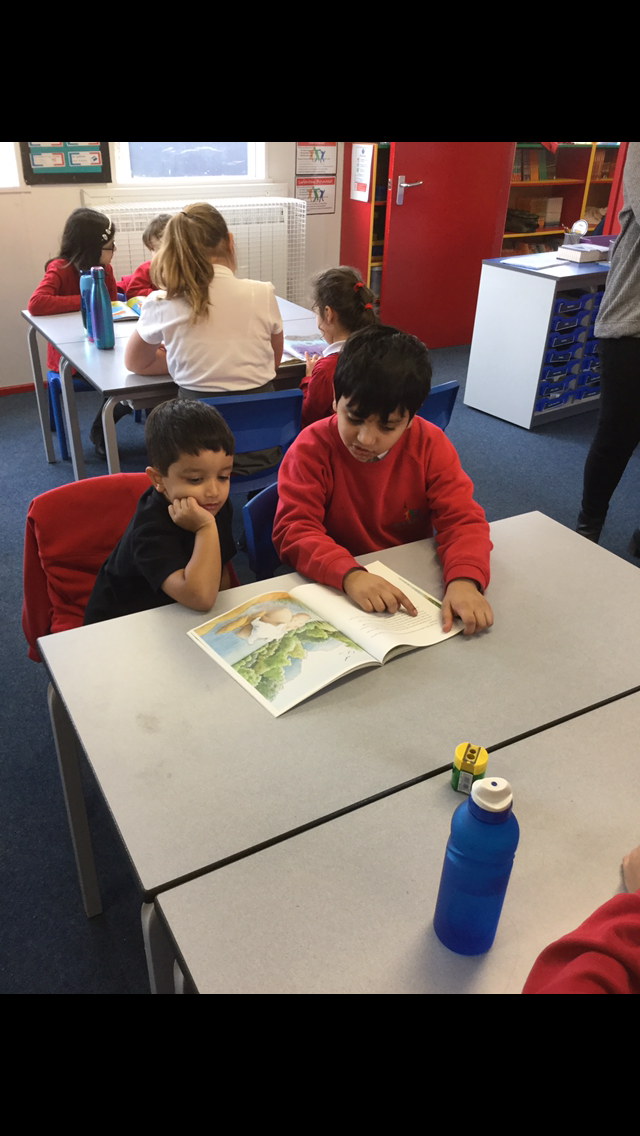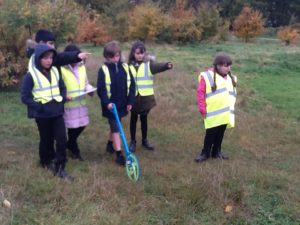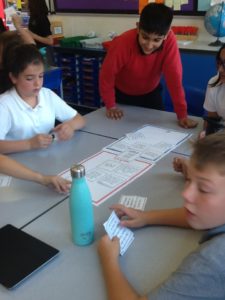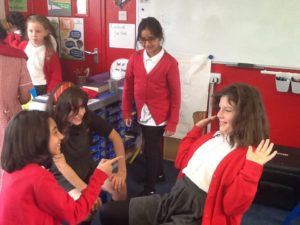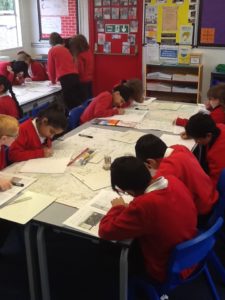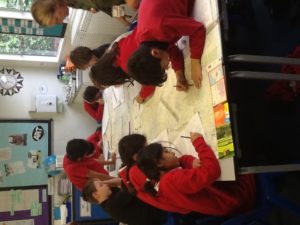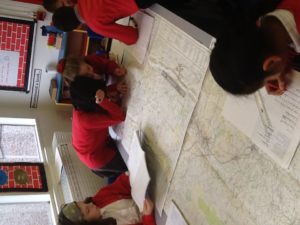This week, the children in Year Five have been learning their science vocabulary by playing games such as Heads up!

Each child was given a word from our focus vocabulary. They had to place it on their head (without looking) whilst the other children used their knowledge of the word to help the child figure out which word it was!
The other children would give information to help, but were not allowed to use the specific word in their clues!
Try playing this at home with your child and test their knowledge of our vocabulary!
Our current science vocabulary is: adaptation, evolution, extinction, fossil, inherited, prehistoric, ancestor, variation and natural selection.
